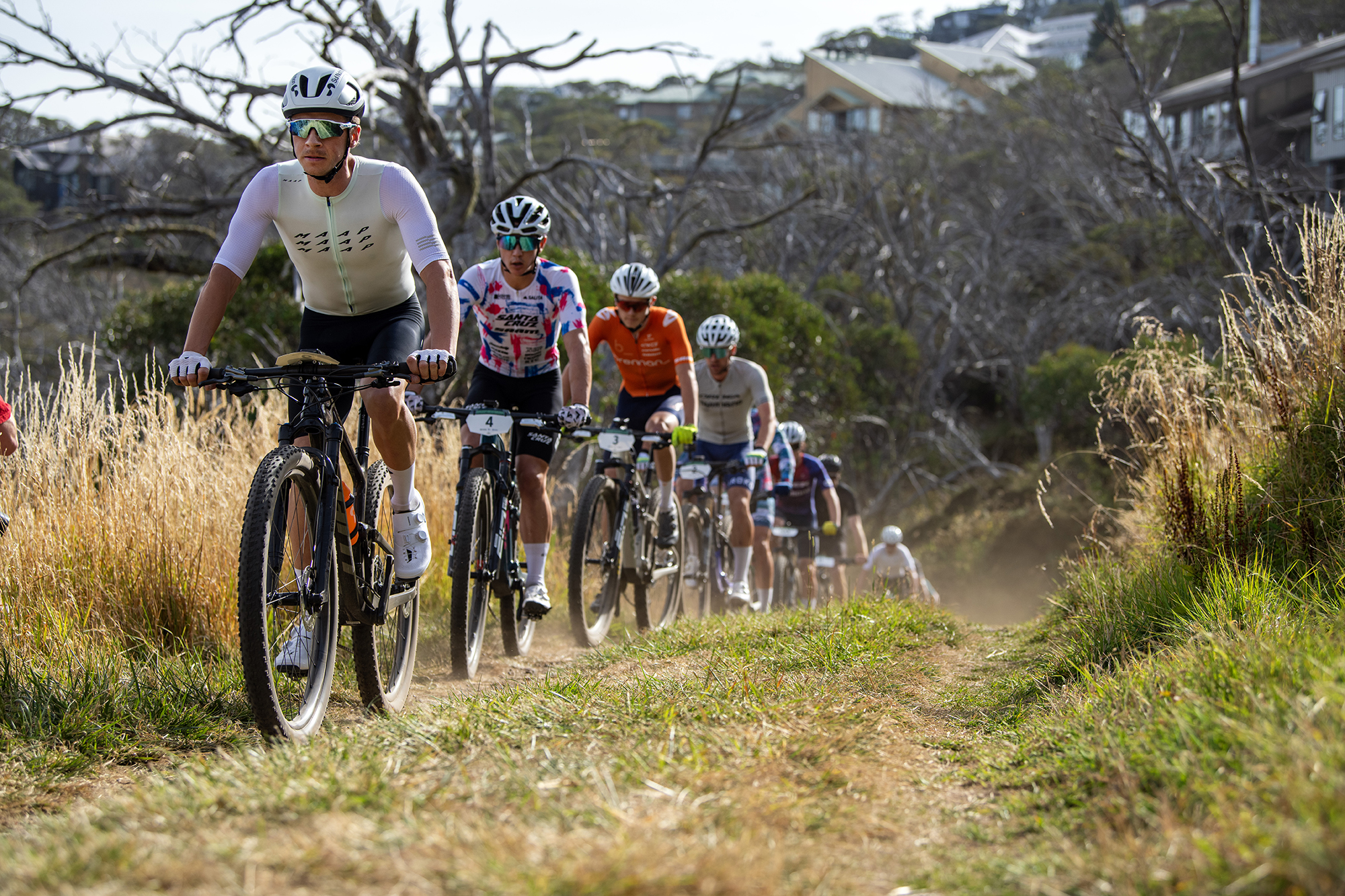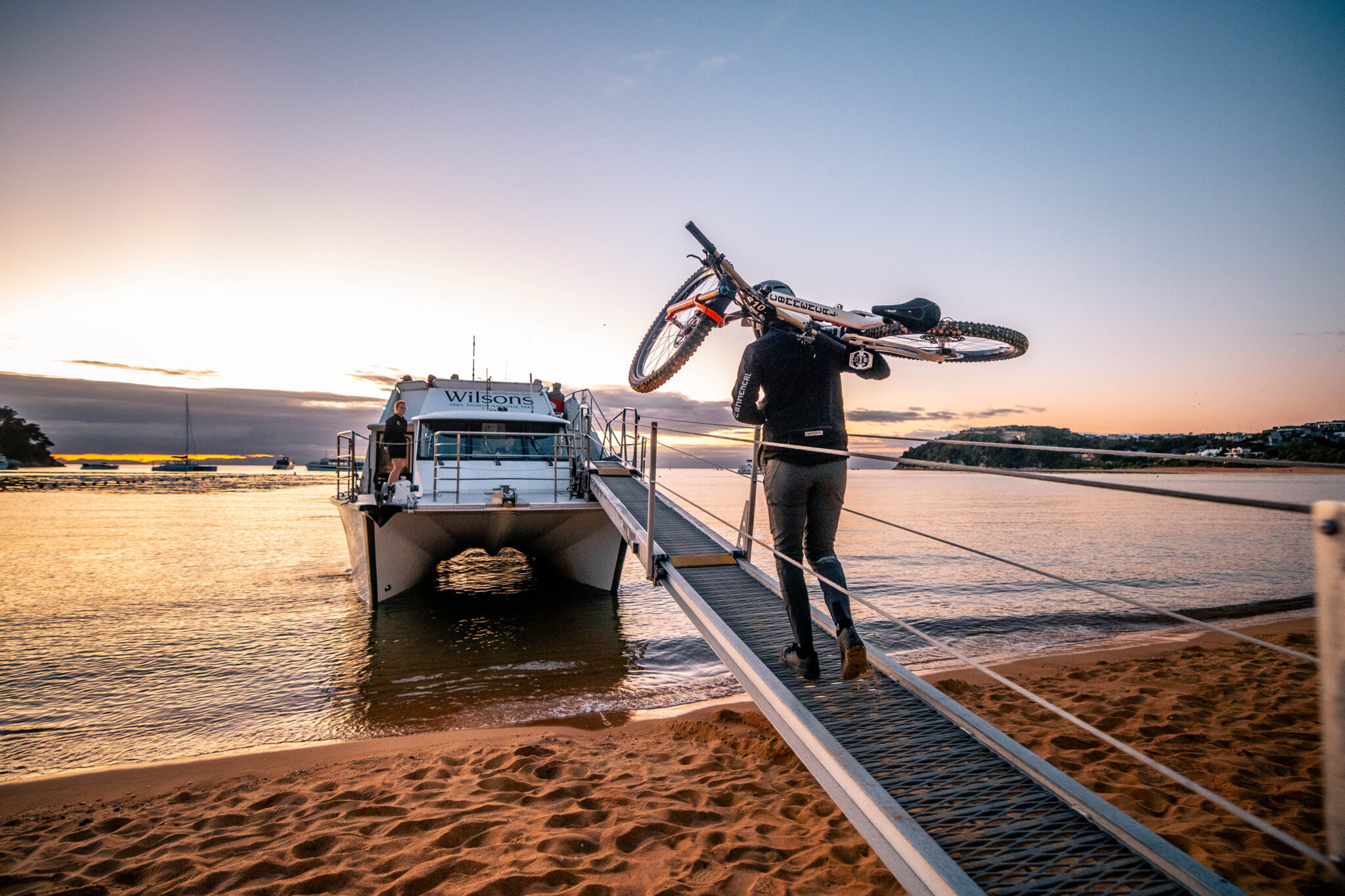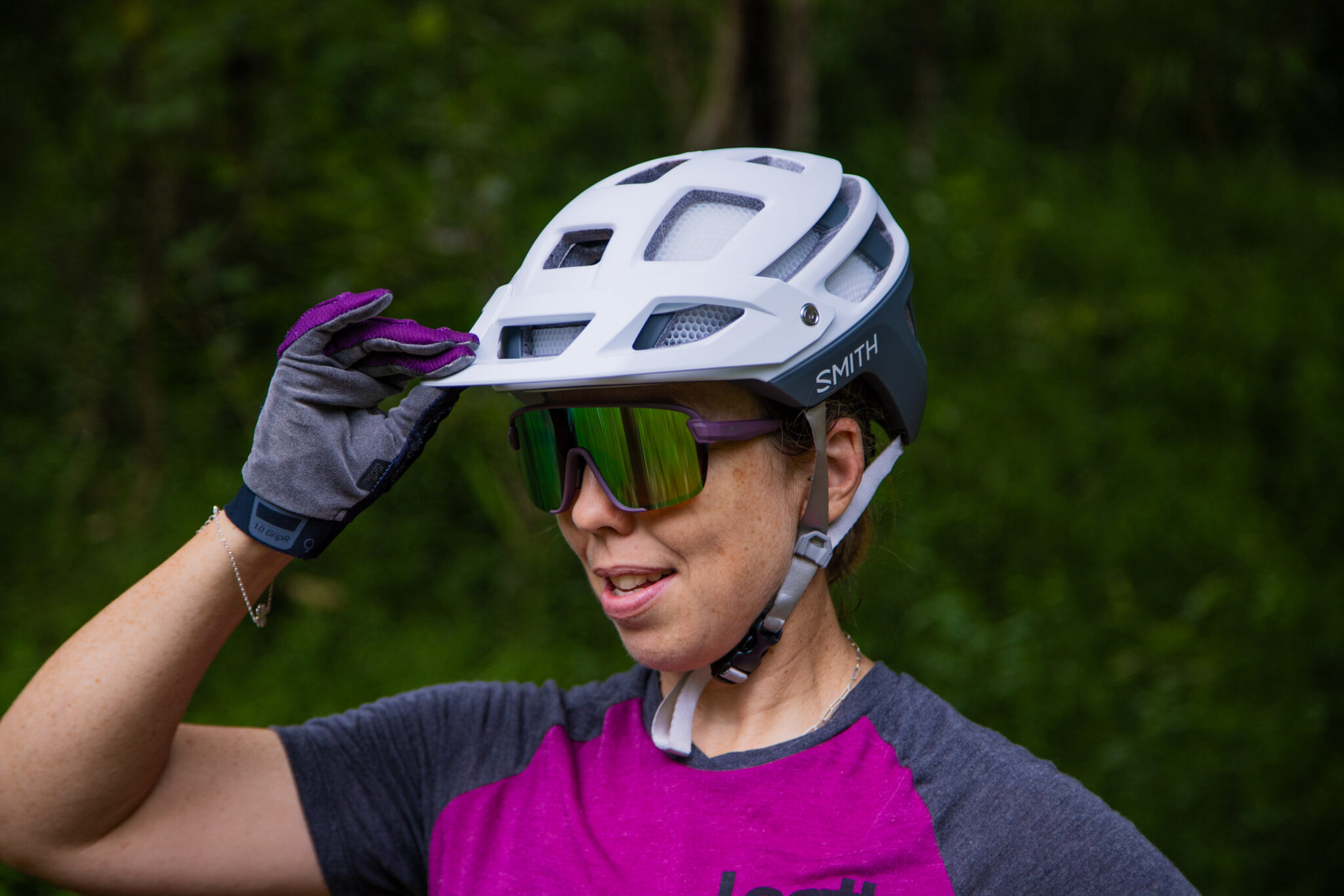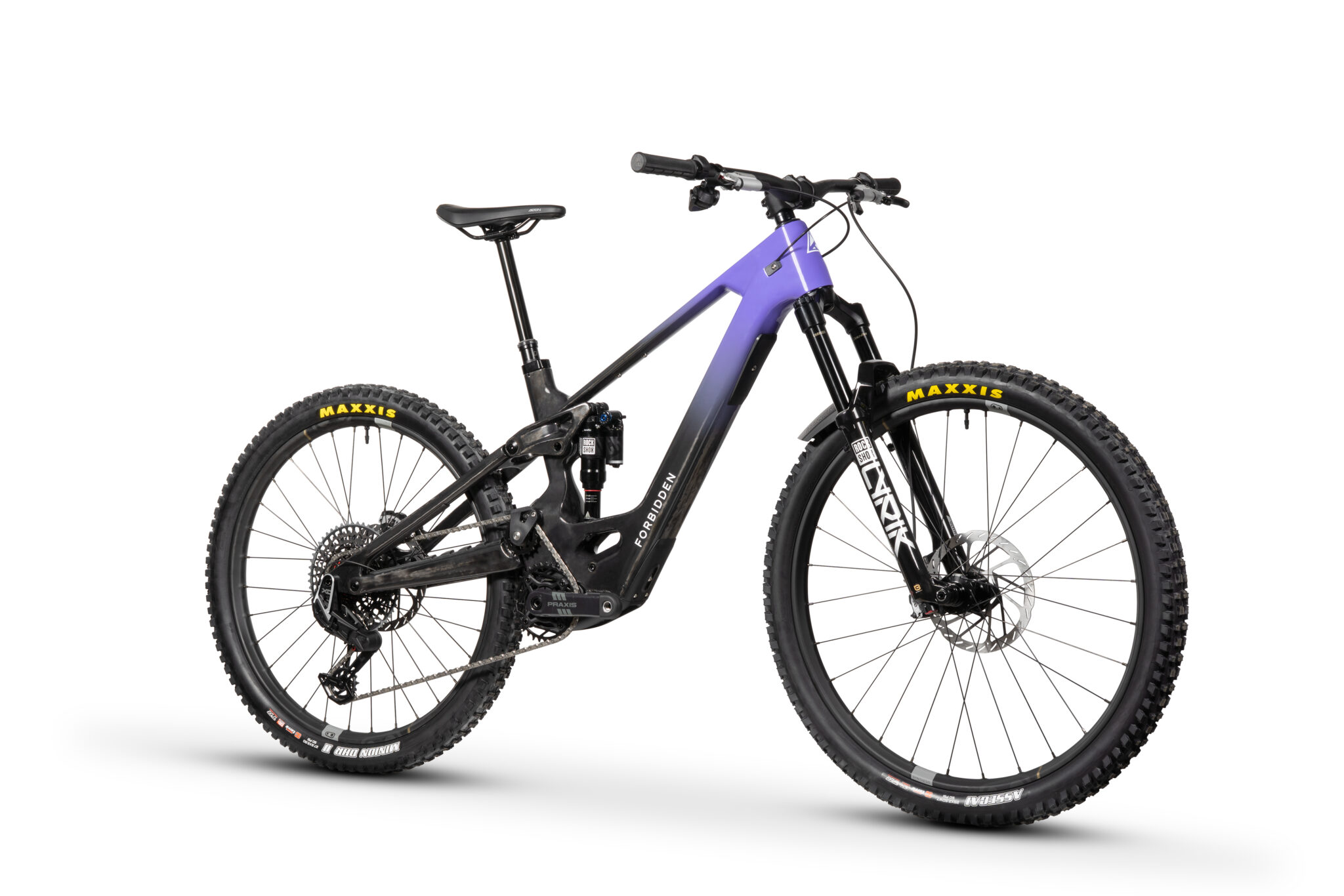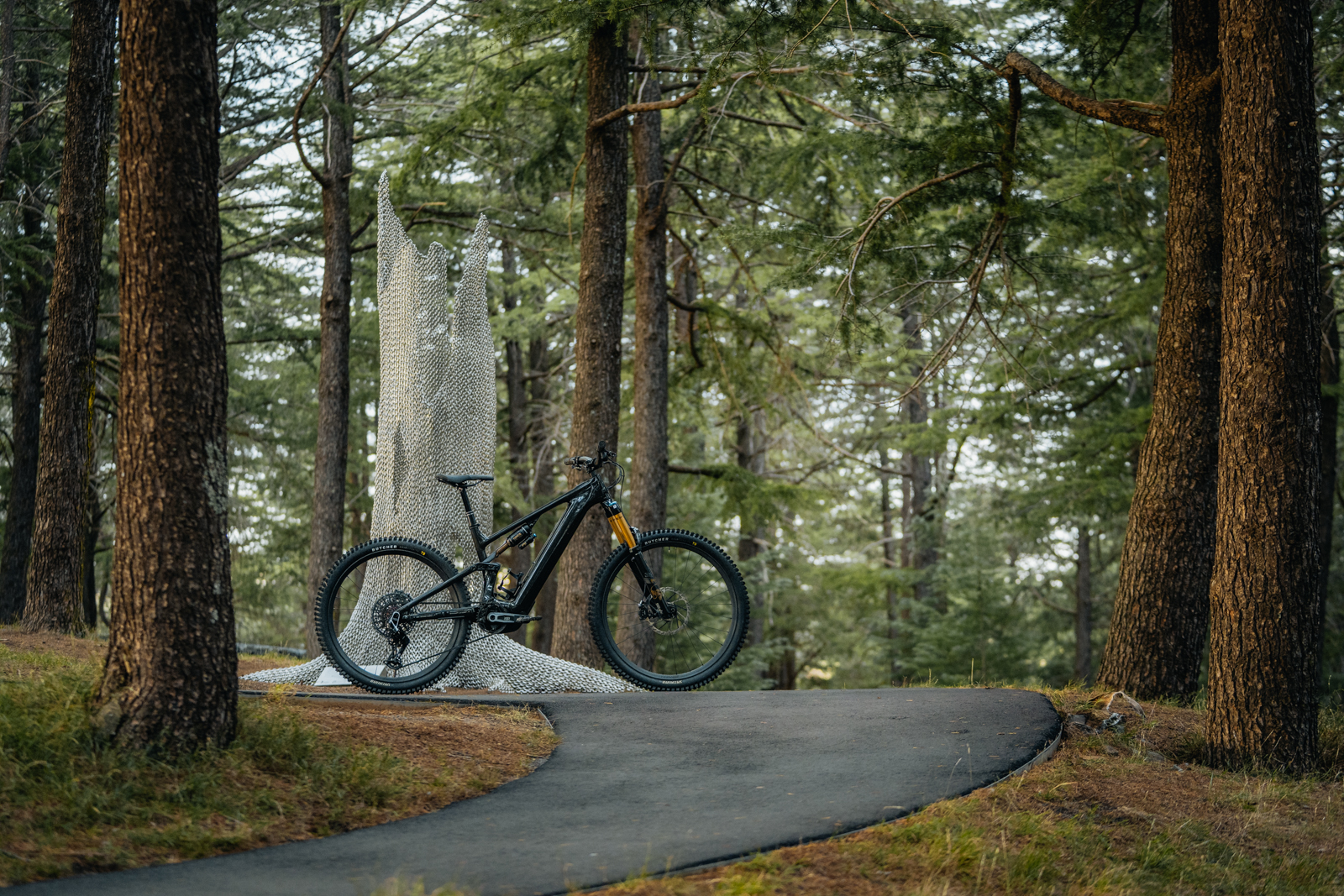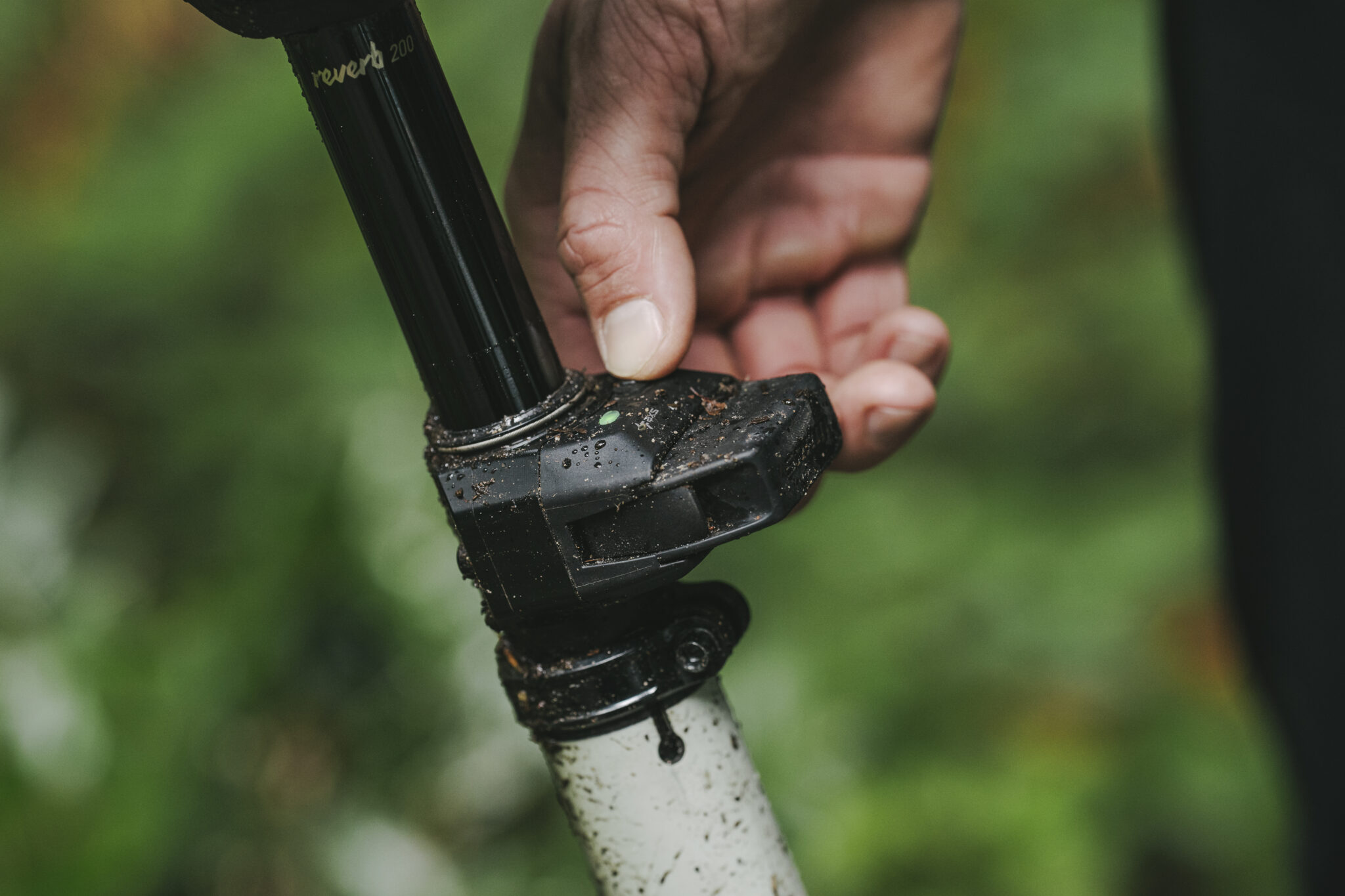Scott Bowden: The Olympics, Coaching Athletes, Roadside Resuscitation and Winning the ‘Warny on 12-hours a week
Photos by Matt Rousu & Luke Newhouse
Scott Bowden is one of Australia’s fastest mountain bikers between the tape, but despite competing in the cross country event at the 2016 Rio Olympic Games and his subsequent European road career, Bowden still somehow manages to fly under the radar.
Transitioning to the road after his Olympic debut, the Tasmanian spent several years trying to break through to the World Tour, but a lingering dose of long Covid saw him pack up for home and move to the next stage of his life while pursuing his degree in Paramedics. In 2023, Bowden began a return to form, which has led to two silver medals at the 2024 and 2025 National Championships in the short track event, and a big win at the 2024 Dirty Warny – a 250km gravel ultra endurance event.
I caught up with Scott to chat about studying, coaching, and what’s next for the much loved Tasmanian mountain biker.
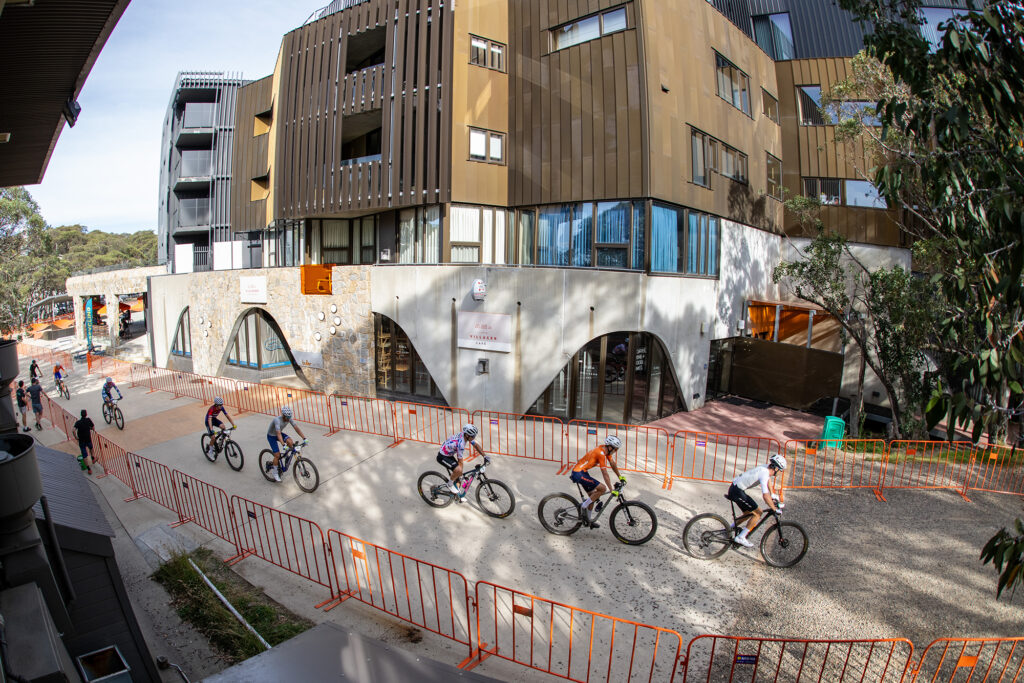
Talking with Scott Bowden, it’s clear we have a lot of similar interests. He’s just finished studying to be a Paramedic, I’m a Paramedic. He’s a cycling coach, I’m a cycling coach. He races bikes, fast and…well, that may be where the similarity ends.
I came into this interview having crossed paths with Scott endless times at races, but without ever sitting down and talking with him deeply, despite our shared experiences.
Chatting shop, Scott started off with a story about a ride that happened towards the end of his Paramedic studies.
“Just before I finished uni I was finishing an assignment. I went for a quick ride for a bit of a study break, and a couple minutes into my ride, I came across this guy that was just like GCS3 (unconscious) and slumped over a park bench. I called out to him, he didn’t respond, and then I was like…I don’t really want to go over to him. He doesn’t look in a good way. I don’t know what he’s on. And he was in a shit position with his airway, but I’m glad I didn’t go over.”
“I called 000, the police got there, so I got some gloves off them and got them to help me move him onto the ground. They found a capped syringe in his pocket. He kind-of came to a little bit, like in and out of consciousness, and I was thinking maybe he’s on opioids, but also maybe GHB…and I just don’t want to be there by myself wearing cleats in case he comes up swinging.”
“Anyway a few Ambulance crews arrived, and they found he had pinpoint pupils, so they gave him Naloxone and he responded pretty well, but still wasn’t great.”
“After they left for the hospital, my mate, who’s a police officer, called me. He saw the call come through with my name on it, and he’s like ‘I just thought I’d let you know about that guy. Good thing you didn’t go up to him, he’s got a record and he’s known to carry blades, brass knuckles and knives. He’s got a history of aggravated assault and something similar to armed robbery’”
“In the end I found out he self discharged from hospital and got arrested shop-lifting 15 minutes later!”
AB Oh my. To be fair that’s like that every day of the job right, just constant risk assessment? You do get a bit of armour from wearing a Paramedic uniform and especially operating in a pair, it’s amazing as long as you have a good partner. That’s very different from stumbling across someone in lycra and road shoes.
SB So I just need to do my graduate year, maybe interstate, and get it done and then I don’t think it will be an issue to move back to Tasmania.
AB So tell me about the comeback trail. You’ve been pretty busy over the past few years with uni and coaching with the TIS but you’ve also sort of been a little bit on the comeback trail since 2023 in Australia.
SB Yeah, I got long Covid in France when I was on the road and realised I knew I’d get better, but wasn’t sure when. I was already a bit of a ticking time-bomb I guess, in terms of getting a World Tour contract on the road, and thought it’s probably not gonna happen this year again. It’s time to move home and crack on with what’s next, which was always going to uni and becoming a paramedic.
When I got home I wasn’t riding really much at all maybe, one to three times a week, but I wanted to get a mountain bike because I sold mine before I went to Europe.
I reached out to Giant and I’m trying to buy one and then you just got chatting on a phone call, and they asked if I’d be interested in doing some gravel and I was like “oh yeah I’d love to but I can’t really afford to buy a bike,” and Alistair Wilson from Giant Australia said “would you be interested in joining the Giant off-road team?”
At the time I was like “oh yeah that sounds awesome, but I don’t want to promise the world, I’m not really riding that much, It’s not my focus now but yeah I’d love to go to some events that I didn’t go to in the past because they didn’t align as well with my goals.”
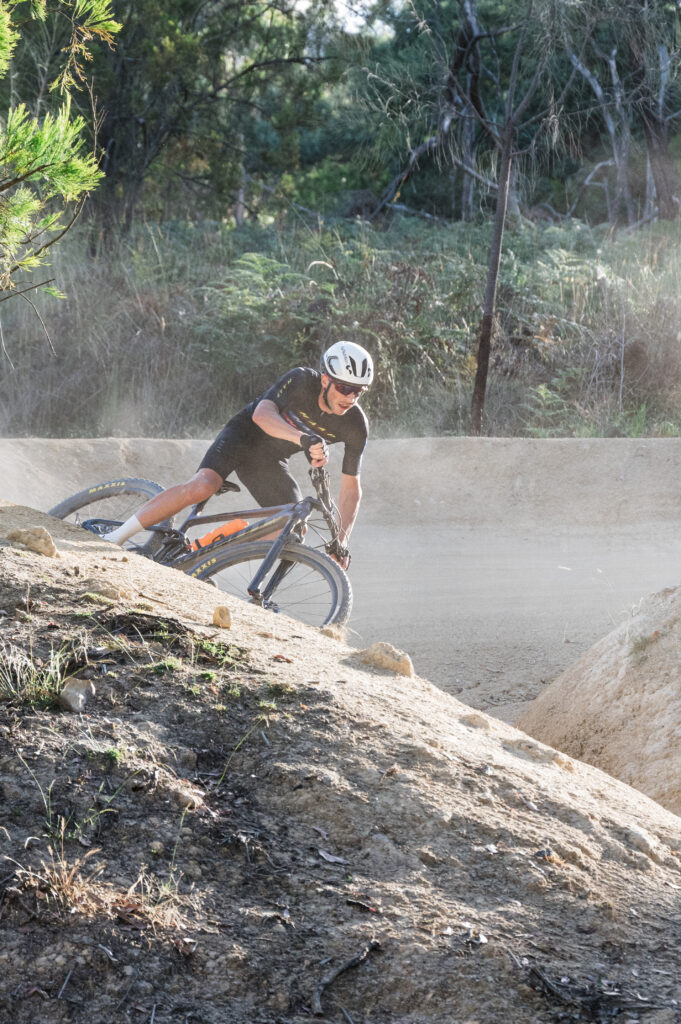
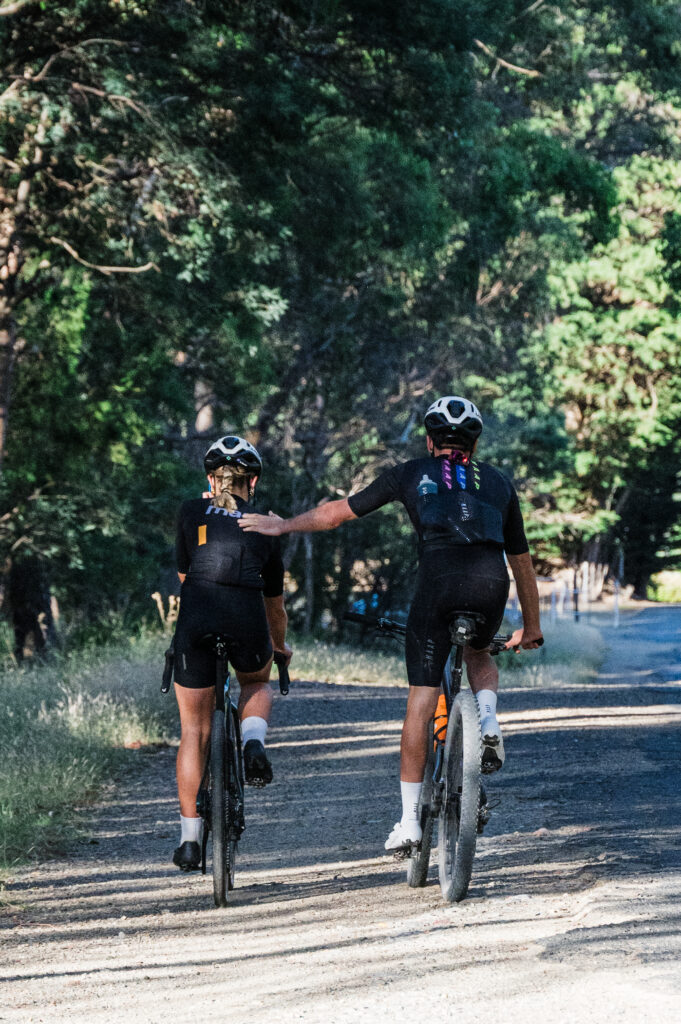
They were happy with that, and that led to me booking some trips and going to some races. The first one was a national series race at Stromlo, arguably the hardest XC course in Australia. My goal was just to try and finish on the lead lap, which I did.
And then I guess I got more and more into it, and I never fell out of love with mountain biking.
I’ve had to learn the sport again, I guess, which has been super fun and just been a bit of just chipping away. I just love going away to compete.
I think I love training or riding my bike, and have a pretty relaxed approach but then I still find myself maybe…not obsessing over the details, that’s not quite right. I guess I don’t do things in halves, which is what I’ve realised.
I turned up to races prepared as best I can with the time I have available and it’s riding and racing, like my way of managing everything else. If I can’t ride then I can’t sit down and study, I think it allows me to be my best at work and you know it means I can ride with my athletes that I coach and yeah, I’m just really enjoying it
AB I mean we obviously throw some Covid years in there as well when you’re overseas and you had long-Covid, when you launched your international road career in France. But delving back a little earlier and we come to your Olympic tale of a little boy – I mean you weren’t a boy but you were a much younger human then – from Tassie going to the Olympics for mountain bike.
It’s not a strange thing to have an Australian mountain bike athlete that isn’t necessarily your household name racing the Olympic mountain bike race, but you also ended up racing the road race in Rio. Can you tell us a bit about how that transpired to refresh our memories?
SB Yes, I thought yeah it was a funny one. There was an article that got published basically slagging myself and Cycling Australia at the time for that selection. But I was only selected for mountain biking.
When the whole selection process was going on, we were asked “if you were selected would you be prepared to do the road race. We’re thinking of taking an extra rider for the track.”
With the Olympics, each nation gets allocated a certain number of athletes across all cycling disciplines: track, mountain bike and road.
Cycling Australia filled an extra spot with a track rider, I guess for the men’s pursuit, and so for the road race it was my role to be a support rider for Richie Port and just help look after him if anything went wrong.
There was a section on the course of cobbles, sort of 70-80km an hour, and sure enough every lap there was mayhem, and bottles, bikes and bodies going everywhere. Unfortunately, Richie dropped his chain twice so my job was just to help, just to stay with him and then get him back to the front of the race.
AB So ultimately a DNF in the road race, but that isn’t a failure for a team Australia’s mission, because that was your role as a support rider. It’s about you being there at the right time for the team.
SB Yeah it was actually the plan. So Rohan Dennis had a finish line at one of the feed zones, and then mine was like the feed zone at the end of the second circuit, and the second time but Ritchie dropped his chain. After that, I didn’t get back to the front of the race and so I just rode with another rider to the feed zone, and then that was my day done.
I think if you maybe I would’ve finished the race otherwise, but that was always the plan and it was a bit of a balancing act in the lead up with the preparation. I would say it was a little bit of an unorthodox preparation because I didn’t ride my mountain bike as much as I would’ve liked.
The road race was on the first day of the Olympics, and the mountain bike was the last, so I was actually in Rio for a long time compared to all the other mountain bikers, and I was mostly just training out on the road once the road race was done. I was on the mountain bike out on the road because we didn’t have access to the course until a number of days beforehand.
I knew I wasn’t a medal chance or anything, I was 21 and yeah, I saw it as an experience while I was already thinking about the road, just because of the available pathways to actually make a career on the road. I still wanted to have the best mountain bike race I could, but I was just doing the best I could with the way the cards were I guess.
AB Yeah and so two weeks later the mountain bike race I think you ended up 36th. Having a look through the results you are amongst the likes of Peter Sagan, Simon Andreassan and Sam Gaze, with Alan Hatherly not too far ahead. Some big names in your part of the results sheet.
SB Yes I think Alan Hatherly finished maybe 24th or something at the Olympics and that was sorted I guess where around where I’d hope to be. I wouldn’t say I had a bad day by any means, but I poured down torrential rain just before the start and the dirt there was sort of clay-like, and on the first lap everyone had to get off in this first forest section.
I don’t think it was shown in the broadcast. So I’m running, and then my cleats got clogged up with mud as I’m sure a lot of people did, and I really struggled to get my feet back in. I just haemorrhaged time there, and had one little silly crash.
It wasn’t my perfect race and it kind of did leave me feeling a bit wanting more because I felt like I could’ve achieved a bit better result, but overall it was an awesome experience.
AB How did you manage the commentary surrounding you being part of the road race from maybe less informed media and keyboard warriors?
SB Yeah well I ended up getting an apology message from the particular author and then he yeah he reached out and then published another article once he had all the information. To be honest I just actually blocked it all out. I think there was a lot of that at the time.
I stayed in Europe to prepare for the Olympics and honestly like it was, it was the best decision. Just to be in the summer weather and not come home to winter because Rio was obviously going to be hot, but it was also good just to not be around the hype of an Olympics. When you’re at home you could kind of just get to work and not spend too much time on the phone and online looking at things. The support I received at home made me really feel better.
You just want to lock in on what matters, and that’s the training and the recovery and making sure you’re good to go mentally. So yeah it was definitely the right decision to stay in Europe and not get caught up in the whirlwind of it all.
AB Yeah so from racing World Cups prior to the Olympics, and then to the pressure-cooker environment of the Olympics itself, what sort of mental or physical skills or abilities do you think you’ve acquired from experiencing that sort of top level of sport? What are you bringing back to Scotty B version 2.0 in Australia back on the dirt?
SB I think it was a full-on time. There was so much logistics just around bikes and training and everything in the lead up. I mean even just as an example leading up to the mountain bike race I spent four or five weeks eating exclusively out of a buffet in Rio, but also maybe for two weeks before in Europe. As an endurance athlete where watts-per-kilogram do play a role, I had to exercise extreme self-control.
I was really proud of the way I handled all of that and I sort of felt like all through that time, and even afterwards “if I can get through this and line up on the start line knowing I’ve done everything I could then I’ve done all I can.” I was happy with how I had that and now I think I go to a race now to really relax because everything kinda just piles in comparison.
There’s so much you can’t control in mountain biking and yeah there’s so many fine details that it’s nice to execute and dial in on, but mountain biking is really unpredictable.
Even the road is unpredictable. At the recent Provelo Q Tour on the road last weekend in Brisbane, my rear wheel got hit in the sprint on the Saturday afternoon stage and I broke a spoke. We were able to get a spare wheel, but then didn’t realise until just before the start of the final stage that my Shimano DI2 wasn’t working, the wheel would come out of true and frayed the DI2 cable and I didn’t have any gears.
So for the last stage I hopped on a completely different bike; different group set with training wheels and tyres on. I was really fortunate to be able to borrow a bike, but it wasn’t specifically set up for me and if it wasn’t for that one, I wouldn’t even be able to start. I didn’t warm up but it didn’t really add any stress, because you know it was either going to happen or it wasn’t.
I think that’s just the thing, you have to roll with the punches and I could still ride to the start line, clip in and take off, and then it’s just just race your bike as usual after that so yeah
AB It seems like it went pretty well. You were third overall in the Q Tour.
SB Yeah I still managed to think that overall when in any case that wouldn’t have changed the I don’t I wouldn’t have done better than that so yeah I was happy with that. It’s funny. With mountain bike races when things don’t go so well, I do still get really disappointed. I certainly still sound relaxed, and I guess I am but it can be disappointing. Mountain biking does still mean a lot to me, to race to the best of my abilities, so you try and limit your losses when things don’t go well. But there’s always going to be another race so I try to keep it all in perspective now.
AB That’s it and I guess like as a coach as well part-time coaching there’s a lot that is based on numbers, output, data and performance. That is essentially what you’re trying to realise; performance. At the same time mountain biking can be such a diverse sport, whether you’re coaching for cross country or a marathon event.
Even within that there’s a wide variety of terrains and trails; singletrack and fireroad. Punchy climbs and long drags. It’s so diverse even compared to road racing. So how do you make peace with that as a coach, and set yourself and athletes up for success when you’re racing events as short as XCC up to ultra-endurance gravel events like the 250km gravel race, the Dirty Warny, which you won in 2024?
SB Yeah it’s funny. Like I think I try obviously those pieces from my own experiences that I tried to bring to my coaching and filter through, but then every athlete’s different. I wouldn’t prescribe the training or the riding I do now to someone a coach, because context is important and I’ve had years of doing 20 to 30 hour training weeks that most of the athletes I work with don’t have.
So I can honestly handle going out and just smashing myself nearly every day. Whereas trying to do that to a junior, that just wouldn’t work, and so you have to be adaptable. But I think a lot of it is like switching between disciplines within mountain bike cross country mountain biking, a short track cross country to a marathon race, a lot of that I think comes down to mindset.
Most riders I coach across the board, everyone is doing intensity, they’re probably racing crits (on the road) and that translates almost perfectly to a short course, and then they’re doing some level of volume which is enough to get them through an XCO race. Then most riders are still doing, you know, one or two longer endurance rides a week, which even if they’re training for XCO if you fuel correctly it’s incredible what the body can do for a marathon.
I mean at the Dirty Warny, my race winning time was bang on 8 hours and the week before I rode less than 8 hours across the whole week. I sort of aim for 10–12 hours of training a week, but I don’t even often do that. But yeah, if you fuel correctly, It’s pretty crazy what the body can do as long as the mind’s willing.
AB Excellent, yeah I agree. Mind is the biggest part for a lot of athletes and it’s something that you can help guide but you can’t necessarily impart that will and that drive. It can also be hard to maintain that across a whole season. I guess with that in mind, are you feeling motivated looking forward to the rest of 2025 and beyond?
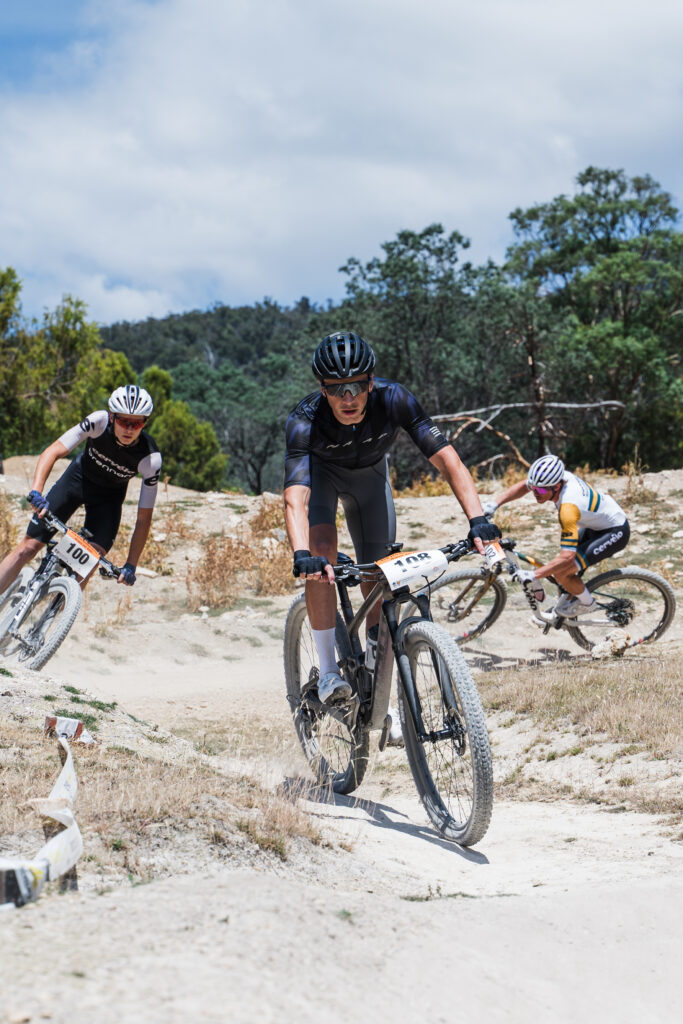

SB The ultimate goal is to continue enjoying riding my bike. I like having a race on the horizon to work towards and that gives me a fair bit of motivation, particularly when going out riding to actually push myself. Yesterday I did a 450km ride from Hobart to Launceston and back on the road and a loop kind of a bucket list thing and whilst I wouldn’t really recommend people be doing that sort of thing if you’re looking at racing XCO, I guess the principle of that was just around enjoyment.
I just enjoy going outside riding and pushing myself, finding what my limits are and still trying to raise the ceiling. Next I’ll have gravel nationals and then the Devils Cardigan a couple weeks after that and then marathon nationals in August. A little bit less racing over the winter, which I’m looking forward to.
Racing across a couple of different disciplines, particularly when you’re just staying here in Australia, is really important to do. Getting that exposure to racing no matter what your level, is really good to keep your head in the game and for me it also offers different experiences. I like going to battle with whoever is on the start line so it’s good. You pick races where I know that there’s gonna be a decent number of contenders there.
Actually it’s just been super nice to be back on the mountain bike and part of the community. There’s so many great people in mountain biking, I think now I’m coming back being a bit older and I feel like I want to give back in some way, whereas when I was younger obviously you’re just so focused. I was really lucky when I was coming through that we had so many great elite riders in Australia like Dan McConnell, Sid Taberlay who was down here in Tassie and I used to go out riding with him. Chris Jongewaard is another one, and it’s been really cool to just catch up with lots of old mates. I think from my era there’s been good retention of guys that were at the top back then still enjoying riding their bike, so that’s been really cool.
This year I did all the national series. I didn’t want to miss one of them and I think that that’s sort of the heart of cross country. We need good riders to be supporting and promoting our national series so hopefully that encourages the younger ones to go along as well and feed down down from there. I think that coming back to mountain biking has really highlighted the importance of developing and then maintaining good relationships within the industry.
I mentioned Giant before. They supported me in the early days of mountain biking and that ended on good terms and now they’re supporting me again now. Without their support I can confidently say I wouldn’t be racing my mountain bike now, and that sort of extends to Shimano and Lazer helmets.
They looked after me all through the road time on the road and they’ve sort of continued that now. Maxxis tyres, as well, used to help me out on the mountain bike and again now. I think it’s first developing a relationship and then I think loyalty goes a long way as well.
AB Well I can’t wait to see how you manage to juggle night shifts with national bike racing!
SB Yeah well I did have a taste of it, I’ve had a few university placements with the Ambulance now and seemed to manage it okay. And that was whilst studying and still working so I’m hopeful I feel like there’s hope that it’s possible but but I do think it’s very different doing it for a month block at a time, as there’s sort of a start and finish, whereas when it’s when it is your job in your livelihood it’s a whole other kettle of fish. We’ll see how we go, but I think in order to do nightshift and balance shift work I still have to ride my bike even if it does come at a cost to performance. I’d like to think that it’s possible and see how we go.

